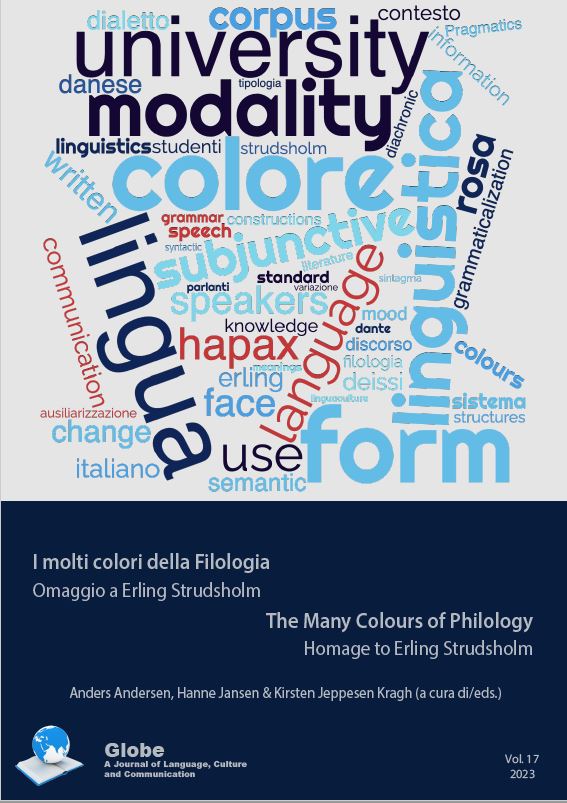The grammatical and discursive competencies in written French in upper secondary and tertiary education
DOI:
https://doi.org/10.54337/ojs.globe.v17i.8212Resumé
This article investigates the acquisition of grammatical and discursive competence by Danish second language
(L2) learners of French in the transition between the last year of the Danish secondary school (gymnasium)
and the first year at university. Focus is made on challenges encountered by both sets of learners in relation to
their written productions. In terms of writing, learners can be categorised according to the well-known
distinction between inexperienced and experienced writers. This study is qualitative with certain quantitative
elements. Data were collected during the spring term 2020 and represented different tasks. The written samples
from the secondary school level were mid-term papers consisting of different types of creative writing, whereas
the written productions from the university level were term papers consisting of two essays related to French
colonial history and literature. The main results of the study reveal that grammatical competence constitutes
the domain where learners at both educational levels encounter most challenges. Moreover, negative transfers
from Danish and English are detected. As far as the discursive level is concerned, both sets of learners employ
connectors from a range of different lexical areas, although the inventory is qualitatively and quantitatively
more remarkable among university students. This study has several implications for practice. Since both sets
of students seem to struggle with grammatical competence, it is important that a form-based focus is maintained
and strengthened at both educational levels to reinforce students’ communicative skills. Furthermore, as the
exam question at secondary school invites students to use an inexperienced writing approach, the exam question
ought to be changed to allow students to write in a more academic way. Furthermore, writing should have a
predominant role at university, also in content disciplines, if students' academic writing skills are to increase.
Downloads
Publiceret
Nummer
Sektion
Licens
Articles published in Globe: A Journal of Language, Culture and Communication are following the license Creative Commons Attribution-NonCommercial-NoDerivs 3.0 Unported (CC BY-NC-ND 3.0). Authors retain copyright and grant the journal right of first publication with the work simultaneously licensed under a Creative Commons Attribution License: Attribution - NonCommercial - NoDerivs (by-nc-nd). Further information about Creative Commons


